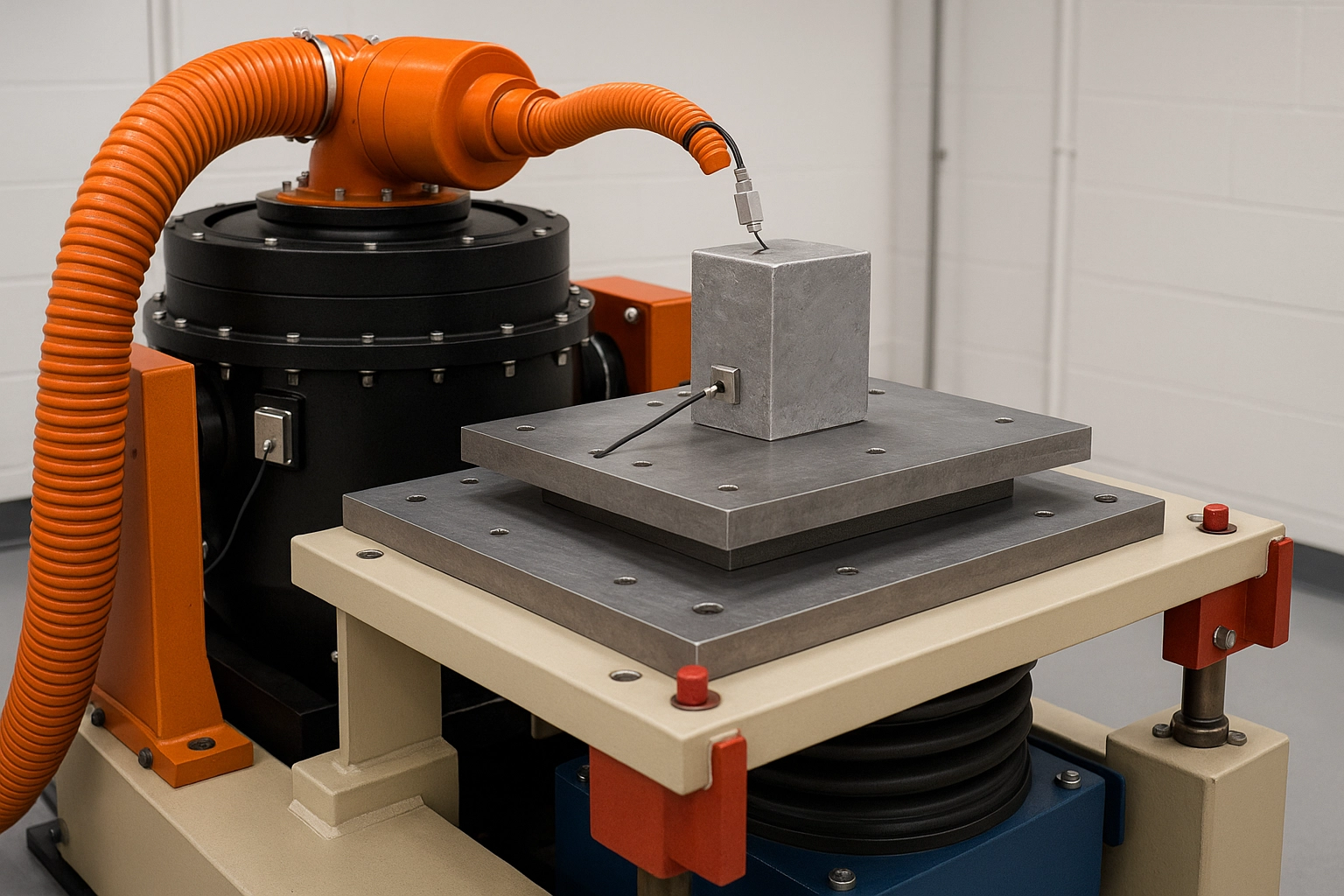RTCA DO-160 Section 25 Random Vibration Test for Automotive Power Systems
The RTCA DO-160 standard is a cornerstone in the aerospace industry, providing guidance on environmental testing methods to ensure reliability and durability of electronic equipment. While primarily aimed at avionics, this standard has been adopted by various industries including automotive, where it plays a critical role in assessing the resilience of power systems under severe mechanical shock and random vibration environments.
Section 25 specifically focuses on the Random Vibration Test, which is essential for evaluating components that may experience rapid changes in acceleration during vehicle operation. This test simulates the unpredictable nature of road conditions, such as potholes, rough terrain, and sudden stops or starts, to ensure that automotive power systems can withstand these harsh conditions without failure.
The test involves subjecting the specimen to a spectrum of frequencies within a specified range, typically from 5 Hz to 2000 Hz. The intensity is controlled by an Input Spectral Density Function (ISDF), which specifies the power spectral density of the random vibration input as a function of frequency. This ensures that the test accurately reflects real-world conditions while adhering to strict standards.
The specimen must be prepped according to specific guidelines, ensuring it is mounted in a manner that allows for accurate measurement and observation during testing. The Environmental Chamber, where the test occurs, maintains precise control over temperature, humidity, and other environmental factors to simulate real-world conditions accurately.
The test concludes with detailed reporting on specimen performance, including any failures or anomalies observed during the process. Compliance with RTCA DO-160 Section 25 is critical for manufacturers aiming to meet stringent quality and safety standards in the automotive industry. By adhering to these rigorous tests, companies can ensure that their power systems are robust enough to perform reliably under challenging conditions.
The results of this test are invaluable for quality managers and compliance officers looking to streamline product development processes. R&D engineers benefit from detailed insights into how components behave under extreme conditions, which can inform design improvements and material selection. For procurement teams, the test ensures that only high-quality suppliers meet these stringent requirements.
Why Choose This Test
- Achieve compliance: Ensure that your automotive power systems meet stringent industry standards.
- Promote reliability: Test and validate the durability of components under extreme conditions.
- Increase customer satisfaction: By ensuring robust performance, you enhance user confidence in your products.
- Reduce warranty costs: Identify potential issues early to avoid costly repairs or replacements later.
- Gain competitive advantage: Superior testing ensures higher product quality and a better reputation.
The RTCA DO-160 Section 25 Random Vibration Test is indispensable for automotive manufacturers seeking to ensure the reliability of their power systems. By adhering to this rigorous test, companies can demonstrate their commitment to quality and safety, thereby gaining a competitive edge in the market.
Customer Impact and Satisfaction
The impact of RTCA DO-160 Section 25 testing on customers is profound. By ensuring that automotive power systems are robust and reliable, manufacturers can meet or exceed customer expectations. This leads to higher product quality and reduced warranty claims, ultimately enhancing customer satisfaction.
Customers benefit from products that perform reliably under challenging conditions, which translates into increased trust in the brand. The test results provide valuable insights into potential areas for improvement, allowing companies to innovate and refine their offerings continuously. This ongoing commitment to excellence fosters long-term relationships with customers, ensuring repeat business and positive referrals.
Compliance with this standard also signals a company's dedication to quality and safety, which is crucial in today's highly competitive market. Customers are more likely to choose products from companies that prioritize these values, leading to increased customer loyalty and satisfaction.
Competitive Advantage and Market Impact
The RTCA DO-160 Section 25 Random Vibration Test provides a significant competitive advantage by ensuring that automotive power systems are robust and reliable. This test demonstrates a company's commitment to quality and safety, which is increasingly important in the market.
By adhering to this standard, manufacturers can differentiate themselves from competitors who may not have the same level of expertise or resources. The rigorous testing process ensures that products meet or exceed industry standards, setting a benchmark for reliability and performance.
The test results are valuable marketing tools, allowing companies to showcase their commitment to quality and safety. This can attract more customers and partnerships, enhancing brand reputation and market presence. Additionally, the ability to demonstrate compliance with stringent testing protocols can lead to higher product demand, driving market growth and profitability.
In a crowded automotive industry, standing out through superior testing practices is crucial. The RTCA DO-160 Section 25 Random Vibration Test provides an essential competitive edge, ensuring that products are reliable and meet customer expectations. This translates into increased sales, better partnerships, and overall market impact.





